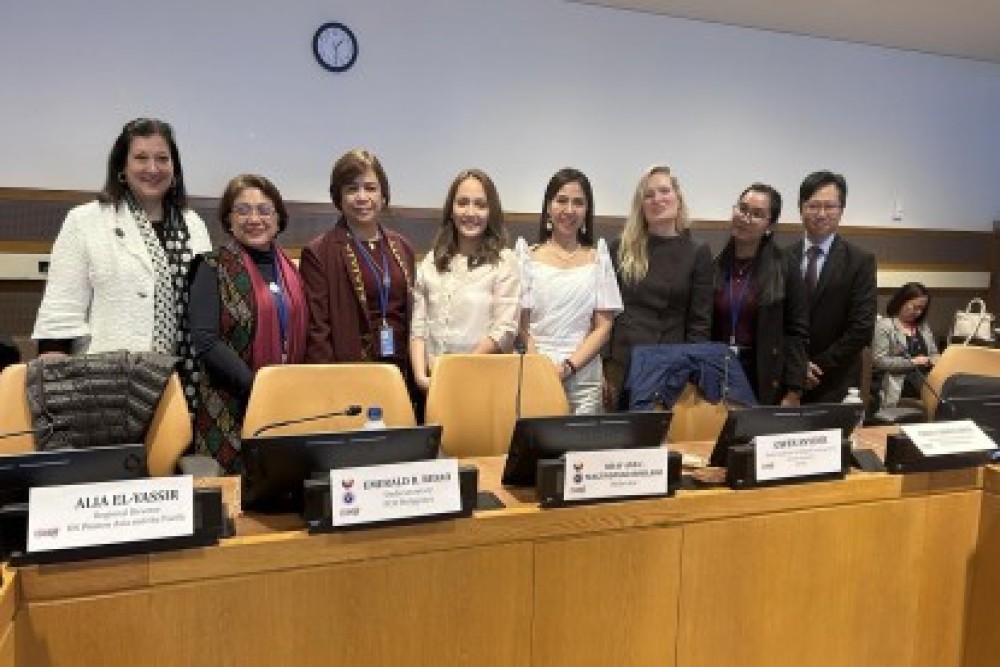Philippine officials participating in the 68th session of the Commission on the Status of Women (CSW68) have emphasized the importance of digital collaboration among nations in empowering women and ending gender disparities.
In an event organized by the Presidential Communications Office (PCO) on the sidelines of the CSW68 in the United States on Wednesday (Manila time), Local Government Assistant Secretary for Administration, Finance, and Comptrollership Ester Apin-Aldana said nations must work together to create equal opportunities for women in the digital landscape.
“Collaboration is essential. We can successfully bridge digital divide and ensure the inclusion of all,” Apin-Aldana said. “The Philippines will continue to leverage technology as a catalyst for inclusive and data-driven governance through adoption of smart city initiatives, data analytics, and green technology to empower women at the grassroots.”
She touted the Philippines’ digitalization efforts to promote gender equality, saying the country is undergoing a rapid transformation by taking advantage of emerging technology to make sure that “no (Filipino) citizen is left behind” under the Marcos administration.
Taking into consideration the challenges women have to face in accessing and using digital tools, she said the Philippine government has also developed various programs to harness technological advancements.
Apin-Aldana said such initiatives include the Gender and Development (GAD) Local Learning Hub certification program for local government units (LGUs); the Philippine Commission on Women’s (PCW) digital GAD library; online GAD webinar series; and GAD Focal Point System and Gad Database.
She noted that the government has also partnered with various private sector institutions to upskill about 300,000 women by providing them with comprehensive digital training and employment opportunities in the next three years.
Apin-Aldana also cited the implementation of several programs in the country, such as the digitaljobsPH and Tech4ED to provide women with more employment opportunities in information and communications technology or ICT-enabled jobs.
She said the Strengthening Initiatives for Balanced Growth and Opportunities at the Localities (SIBOL) Program initiated by various LGUs would prepare women to develop the requirements of the private enterprises for emerging industries.
“The ongoing Digital Innovation for Women Advancement highlights the increasing women's participation in ICT,” Apin-Aldana said.
“Our Philippine Commission on Women will continually enhance the gender responsiveness of government policies and collaborate closely with local government units and national agencies.”
Apin-Aldana said the Philippines is committed to promoting gender equality and combatting violence against women through its existing laws, rules and regulations, such as Republic Act (RA) 9710 or the Magna Carta of Women, RA 11313 or the Safe Spaces Act, and the establishment of the Violence against Women and Children Registry System.
She added that such initiatives as e-lawyering and e-reporting to the Gender Ombudsman facilitate access to legal assistance and streamline complaint processes for accessibility at the grassroots level.


